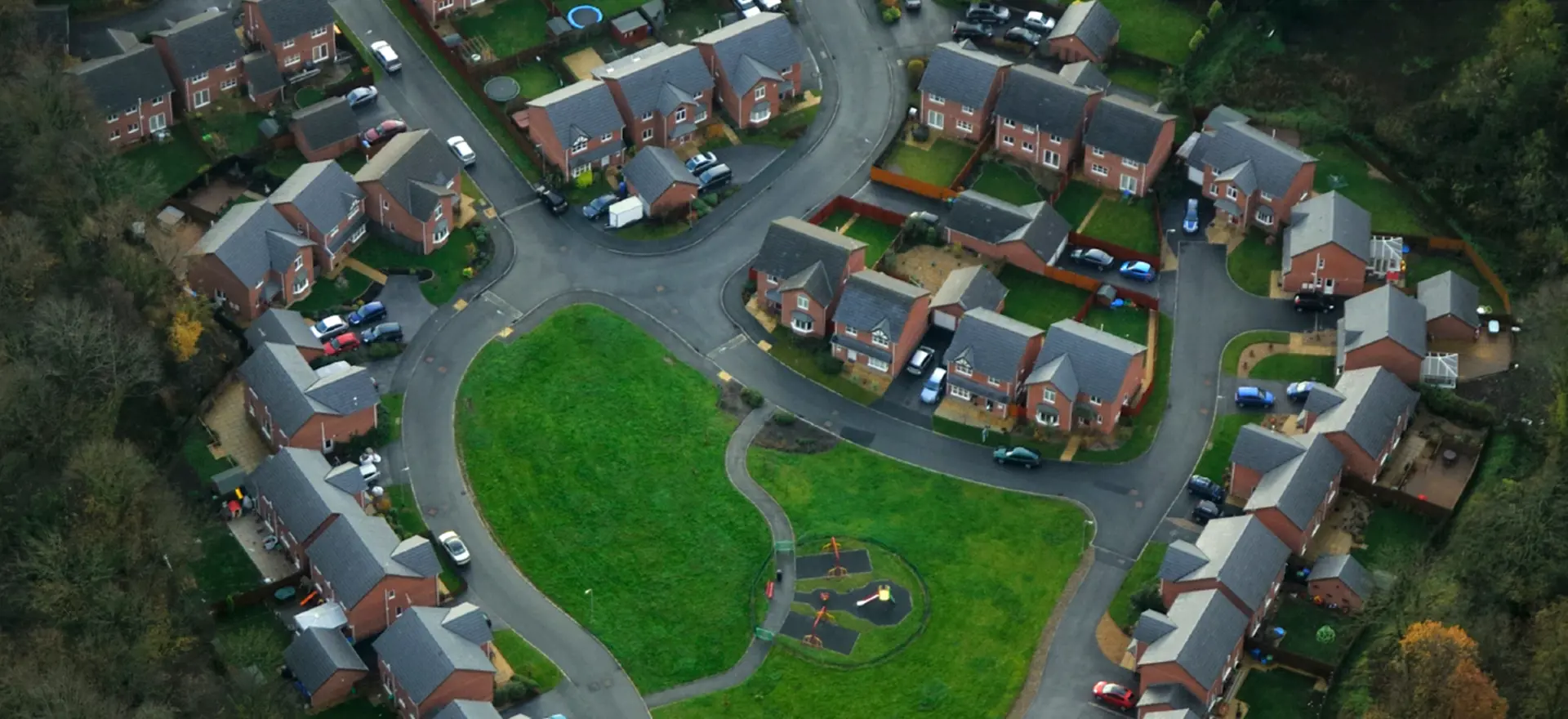Update: 20 September 2018: In June 2018 the Planning Practice Guidance regarding the use of pre-commencement conditions, within the chapter on ‘Use of Planning Conditions’, was introduced to provide guidance on interpreting the new legislation.
The complete up-to-date guidance is available here.
The beginning of May saw the making of two new statutory instruments, the combined effects of which will introduce new legal requirements where pre-commencement conditions are proposed to be attached to planning permissions.
The legislation will bring into force several of the measures outlined in the Government consultation, ‘Improving the use of planning conditions'
[i], published in January 2018.
In short, from 1 October 2018, the new legislation will require local planning authorities (LPAs) to obtain applicants’ written agreement to the attachment of any pre-commencement conditions to a planning permission. This would also apply to Section 73 planning permissions to modify an existing condition.
The measure aims to speed up the planning process by discouraging decision makers from including unnecessary pre-commencement planning conditions that might slow down starts on-site and consequently drive up costs, or even prevent development from happening at all.
The sub-sections that will be brought into force by the Neighbourhood Planning Act 2017 (Commencement No. 5) Regulations 2018
[ii] essentially make provisions related to Section 100ZA (5)
[iii], which states:
“Planning permission for the development of the land may not be granted subject to a pre-commencement condition
[iv] without the written agreement of the applicant to the terms of the condition.”
The second of the statutory instruments to have been introduced, the Town and Country Planning (Pre-commencement Conditions) Regulations 2018
[v], clarifies the procedural requirements for local authorities to request permission to impose a pre-commencement condition, where this has not already been agreed in writing. The Regulations also set out the circumstances where a local authority can impose a pre-commencement condition without the agreement of an applicant.
If an applicant has not already agreed in writing that the local authority can impose a pre-commencement condition, the local authority will be required to notify the applicant of the proposed condition in writing. The notification must set out the full text of the condition, the reasons for the condition, and the reasons why the conditions must be a pre-commencement condition. Applicants will then have ten working days in which to make a "substantive response" to the notice.
As outlined in the regulations, a "substantive response" could be either be a statement that the applicant does not agree to the conditions, or a comment on the proposed conditions.
If no response is received from the applicant within the ten-day period allowed, the regulations will allow planning permission to be granted, after ten working days, with any pre-commencement conditions referred to in the notice attached. The application may be determined earlier if the applicant responds within the ten-day period.
If the applicant does not agree to the terms of the pre-commencement condition, the local authority can either amend the condition, remove it, or make it (for example) a post-commencement condition. If none of these options would make the development acceptable, planning permission would be refused.
Developers will obviously wish to avoid refusal, therefore the applicant should closely monitor the LPA’s reaction to the applicant’s written response to the notice, where written consent has not been given. There does not appear to be anything to prevent the developer writing to the LPA, following the formal notification procedure, to advise that the condition is acceptable to them after all.
If the wording of the pre-commencement condition is amended in a different way to the applicant’s proposal, it appears that a second notice must be issued to the applicant.
However, for major schemes in particular, it is likely that most LPAs will continue best practice and discuss proposed conditions with applicants prior to the issue of the notice required by the regulations, to ensure that there are no surprises at that stage. Furthermore, the tweaking of pre-commencement condition wording and associated issuing of notices and responses could occur in writing fairly swiftly via email on standard templates.
The Secretary of State must issue guidance to local planning authorities about the operation of this section and regulations made under it (s100ZA(10)), so one would anticipate that a Planning Practice Guidance update covering the dialogue and requirements between applicants and the LPA, in the context of the new regulations will emerge before October.
Whilst the Regulations have brought few surprises, they do not go as far as expected and some groups may have hoped. In the recently published response to the consultation
[vi], a number of respondents requested that exceptions should be made to the requirement for applicants to agree certain pre-commencement conditions, notably for matters regarding heritage, nature conservation and environmental protection. Such exemptions were originally proposed when the Neighbourhood Planning Bill was published in 2016, but had disappeared by the time of the first ‘indicative draft’ regulations in December 2016. Accordingly, no such exceptions have been made, and where complications arise and an applicant does not agree to a condition relating to such matters, the authority will refuse permission.
Another omission (for now at least) is the exclusion of legislation which would prohibit certain types of conditions; subsections 1-3 of s100ZA have not been brought into force. This legislation was intended to prohibit any condition not meeting the policy tests set out in the National Planning Policy Framework (para 206) and informed by case law (i.e. necessary, reasonable, enforceable, precise and reasonable in all other respects) as suggested in the 2016 Consultation response
[vii].
On the whole, whilst the changes coming in simply consolidate existing practice into law, at present it is hard to say whether they will improve matters, or simply confuse matters further by adding another layer of complexity on to an already complex development management system.
Whilst planning conditions play an important role in ensuring that development is acceptable, unnecessary pre-commencement conditions create delays which not only delay new development, but can make it difficult for developers to access finance. Enforced engagement between local authorities and applicants should therefore encourage more reasonable use of conditions by difficult, hesitant or mistrustful LPAs, whilst encouraging the possibly more intransigent applicants to accept conditions in order to ensure that planning permission is granted.
LPAs may find the process onerous, particularly for householder development, where those unfamiliar with the need to agree to pre-commencement conditions may not respond within ten days, meaning that applications typically decided in the last few days of the determination period do not meet the target deadline.
To minimise this potential difficulty, some LPAs might be considering issuing a notice on receipt of specific applications, stating that if the planning application is approved certain pre-commencement conditions would be attached, to which the applicant would be required to respond within the defined period.
In any event, to ensure that target determination periods are met, LPAs should complete all reports for applications that they consider might need pre-commencement conditions at least ten working days prior to the determination period ending.
Such a shift in approach – and the associated administration tasks involved – should not be underestimated. This alone might be sufficient to ensure that what might appear to be a fairly soft regulation has the effect desired by Government, and indeed fewer pre-commencement conditions will be attached to planning permissions after October – perhaps for smaller developments in particular. But alternatively, it may lead to unexpected refusals, where the applicant responds in the negative.
[i] MHCLG - Improving the Use of Planning Conditions - Consultation on draft regulations[ii] The Neighbourhood Planning Act 2017 (Commencement No. 5) Regulations 2018[iii] Section 100ZA of the Town and Country Planning Act 1990[iv] Pre-commencement condition is defined in s100ZA(8) as follows:(8) “Pre-commencement condition” means a condition imposed on a grant of planning permission (other than a grant of outline planning permission within the meaning of section 92) which must be complied with—(a) before any building or other operation comprised in the development is begun, or(b) where the development consists of a material change in the use of any buildings or other land, before the change of use is begun.[v] The Town and Country Planning (Pre-commencement Conditions) Regulations 2018[vi] Government response to the consultation on pre-commencement conditions – May 2018[vii] Government response to the consultation on improving pre-commencement conditions - Dec 2016



